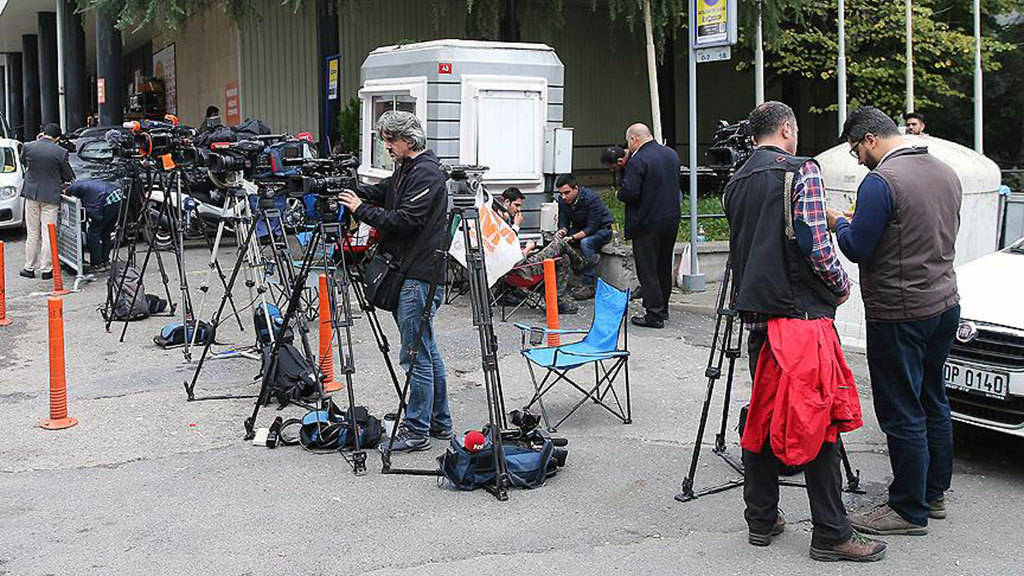
Implications of the Khashoggi case for Middle Eastern politics
The killing of Jamal Khashoggi, a well-known Saudi journalist, an intellectual and a contributor to The Washington Post, will be remembered as a milestone for Saudi Middle Eastern policy.
Share
The killing of Jamal Khashoggi, a well-known Saudi journalist, an intellectual and a contributor to The Washington Post, will be remembered as a milestone for Saudi Middle Eastern policy. By influencing almost all the regional issues, the case will change the regional balance of power and global projections about the region. In this article, I will analyze the impact of the case on some regional disputes.
First, due to the Khashoggi case's domestic implications, the Saudi administration will face stronger political opposition from inside the royal family, the religious establishment and reformist groups. The kingdom has experienced significant breaks from tradition, which have caused political instability, and the Khashoggi case will only add fuel to that fire.
Furthermore, the Saudi regime's domestic policy will attract more criticism than ever from the outside. Western countries have started to criticize the Saudi regime for its conflicting and vulgar policy toward other countries. For example, Saudi authorities recently overreacted to a comment made by Canadian Foreign Minister Chrystia Freeland, who commented on the arrest of a Canadian citizen in the kingdom.
When Freeland asked the Saudis to free their citizen, Saudi Arabia decided to freeze its relations with Canada. Likewise, European countries such as Germany and France have begun to take concrete measures against the kingdom. For instance, German Chancellor Angela Merkel declared that Germany would stop exporting weapons to Saudi Arabia until the end of the Khashoggi investigation. Since the positive persona Crown Prince Mohammed bin Salman (also widely known as MBS) has tried to construct for the last several years collapsed with the Khashoggi case, it will be very difficult for Riyadh to recover global and regional support for its regional vision. As a result, increased political vulnerability and economic losses will lead the kingdom to intervene less in regional issues.
In light of this, the Saudi-led coalition in Yemen will face more criticism due to the mass killings of civilians and the violations of human rights during the ongoing military operation. Riyadh has been carrying out military operations in Yemen for the last four years, resulting in the deaths of tens of thousands of civilians and starvation for millions of Yemeni women and children. Until very recently, there have been no serious objections to this operation. However, after the Khashoggi case, more Western institutions are expected to raise their voices against human rights violations. As a continuation of this stance, the Saudi policy on Iran will attract less support from the West. European countries, such as the U.K., France and Germany have already begun to criticize Riyadh's policy toward Iran.
The Khashoggi case will have negative effects on the projections proposed by U.S. President Donald Trump's administration. First, the case will obstruct the implementation of the "Deal of the Century" because the linchpin of the deal, the crown prince, has been linked to the journalist's death.
The Trump administration and Jared Kushner, Trump's son-in-law and senior adviser as well as a close friend to the crown prince, will face criticism due to their support for MBS. Defending the crown prince will become increasingly more difficult since the claims have greatly damaged his legitimacy.
Furthermore, the Khashoggi case may prevent the establishment of the Middle Eastern Strategic Alliance (MESA), another Middle Eastern project crafted by the Trump administration. Since the Saudi kingdom is the central country in the planned alliance, it will be quite difficult to form an effective military pact in the region after the destruction of the positive and reformist Saudi perception. After all, some countries like Qatar and Kuwait were not so keen on participating in this project, to begin with. After Khashoggi, both regional and global countries will hesitate to cooperate with the Saudi regime.
All things considered, the deterioration of the kingdom's position in the region is easily foreseeable; yet, regional states, mainly Turkey, need to be careful in the policies they pursue while trying to fill the void.
[Daily Sabah, 23 October 2018]
Tags »
Related Articles






